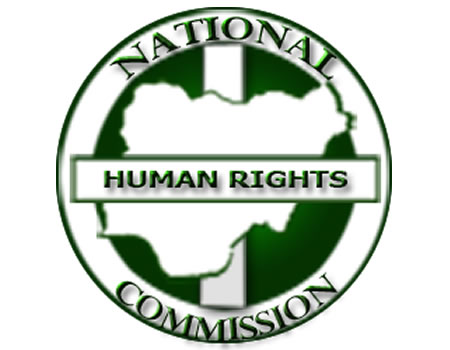

The Executive Secretary of the National Human Rights Commission (NHRC), Dr Tony Ojukwu, on Wednesday, said, migrants should be treated as human beings and should be treatment fairly.
Ojukwu, who stated this in Keffi, Nasarawa state while addressing a two-day capacity building for media on human rights based approach to migration and prevention of trafficking in persons and smuggling of migrants said, the capacity of media needs to be built in view of its role in aiding people formed opinion on issues through their reportage.

According to Ojukwu, the training was organized to enhance understanding on Traffick in Persons (TiP) and Smuggling of Migrants (SoM) and human rights-based approach to migration and to equip media agencies with the skills and knowledge to report ethically, accurately, and sensitively on issues of trafficking in persons and smuggling of migrants.
Ojukwu said, “Human rights is cross cutting in all migratory movements primarily because human rights are universal, and everyone on the move is entitled to the protection of their rights as guaranteed by National Regional and international laws”.
According to him, the Human Rights Based Approach (HRBA) is a conceptual framework aimed at promoting and protecting human rights based on international standards and puts human rights and corresponding state obligations in policy, empowering migrants in vulnerable situations to participate in decision-making processes and hold duty-bearers accountable.
The NHRC boss added that, “A HRBA to migration prioritizes treating migrants as human beings, underscored by principles of non-discrimination, empowerment, participation, inclusion, and accountability.
“The Commission believes that its response to the human rights of migrants and persons who have been trafficked or smuggled will be anchored on our express and inherent mandate and powers”, he said and added that, the Commission is the national institution mandated by its enabling Act to promote, protect and enforce the rights of every citizen and foreigners in Nigeria without discrimination to race, sex, religion, ethnicity etc.
Ojukwu said, the media, as a key influencer of public opinion and awareness, plays a crucial role in framing narratives and policy discourses that affect public actions, thoughts, policymaker priorities, and migrant decisions.
The media disseminates information while highlighting the challenges, aspirations, and vulnerabilities of migrants, fostering a deeper understanding of migration drivers. This influences public perception and the design of programs and initiatives by policymakers.
In his words, “To understand and report on discriminatory practices and the unequal power distribution underlying trafficking and smuggling of migrants, which maintain impunity for perpetrators and deny justice to victims, it is essential to build media capacity on HRBA to migration.
“This enables understanding of how human rights violations arise throughout the trafficking cycle and how states’ obligations under international human rights law are engaged.”
In her speech, the Senior Human Rights Adviser, Office of the United Nations Resident/Humanitarian Coordinator, Adwoa Kufuor-Owusu said, Nigerian media outlets representation of migrants and migrant issues have been patchy.
She observed that, the frequency of newspaper coverage of migrants is often low and that when they are reported, migrants are not quoted or interviewed, as Journalists often rely heavily on government sources with little attention given to why migrants were migrating in the first place.
Often, she said, migrants are described in reports as “returnees”, “evacuees”, “stranded Nigerians abroad”, or “illegal migrants” without contextualisation and added that, migrants are portrayed as vulnerable or stranded individuals in need of rescue or intervention.
Kufuor-Owusu said, because of the influential role of the media in shaping public opinion, policy making and policy makers about issues including migration, the capacity of journalists to report the experiences of everyone in society fairly is so critical.
She said, “No country is impervious to fake news, misinformation and stigmatization. Studies show Nigerian media outlets representation of migrants and migrant issues have been patchy.
“Among other challenges, the frequency of newspaper coverage of migrants is often low and that when they are reported, migrants are not quoted or interviewed. Journalists often rely heavily on government sources. There is also little attention given to why migrants were migrating in the first place.”
ALSO READ THESE TOP STORIES FROM NIGERIAN TRIBUNE








